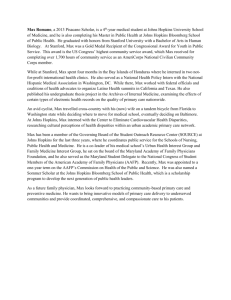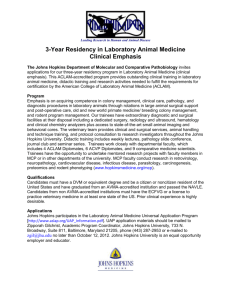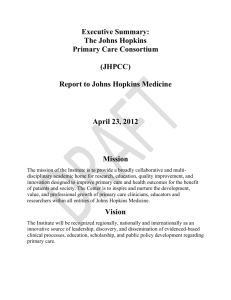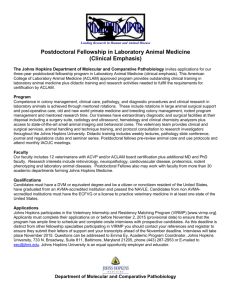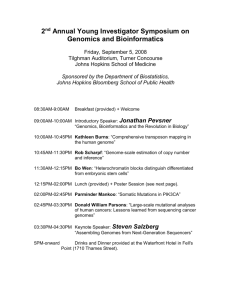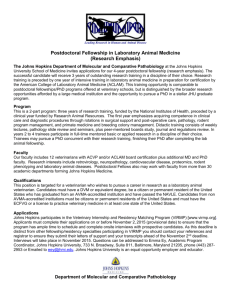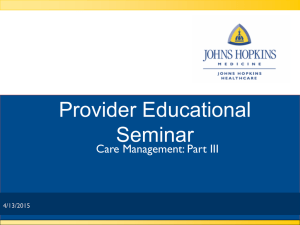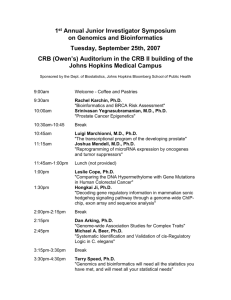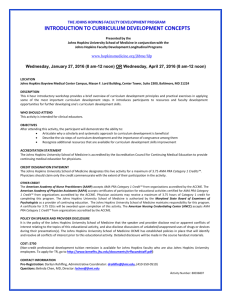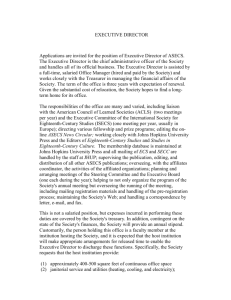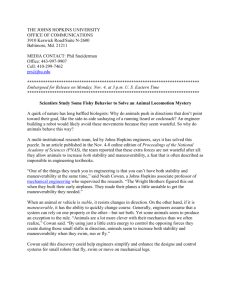Provider Educational Seminar
advertisement
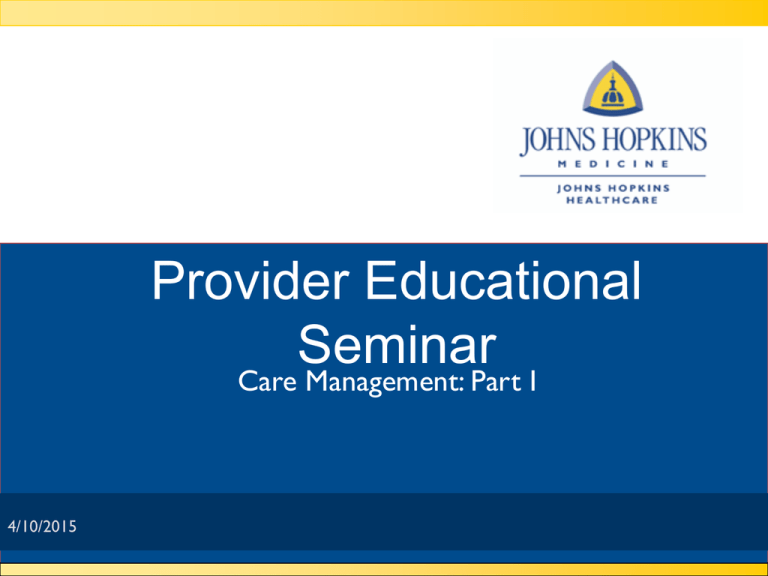
Provider Educational Seminar Care Management: Part I 4/10/2015 4/10/2015 Clinical Initiatives: Care Management Divisions within Care Management: • Case Management • Utilization Management • Special Needs • Social Work • Health Promotion and Wellness • Outreach • Evaluations and Outcomes Presented by: Johns Hopkins HealthCare 4/10/2015 Care Management JHHC’s unique care management approach: • Targets entire population • Focuses on continuum of care • Tiered management approach with three levels of intervention • Targeted diagnoses: diabetes, asthma, cardiovascular disease, COPD Presented by: Johns Hopkins HealthCare 4/10/2015 Care Management Level 1: High Intensity Level 1 Complex Case Management Level 2 Monitored Case Management •Delivered by Complex Case Managers •Care coordination services •Individualized case management plan •TeleWatch RN telemonitoring Level 2: Moderate Intensity •Condition-specific interventions •Focus on improving health status •TeleWatch telemonitoring Level 3 Lifestyle Management Patient-Centered Interventions DATA DRIVEN Presented by: Johns Hopkins HealthCare 4/10/2015 Level 3: Low Intensity •Awareness •Prevention •Web-based interventions •Health coaching & education Care Management Specialty care management programs target members with: • High risk pregnancy (Partners with Mom) • HIV/AIDS • End State Renal Disease • Rehabilitation needs • Terminal illness or are at the end of life (Omega Life) • Children with Special Needs Presented by: Johns Hopkins HealthCare 4/10/2015 Care Management Care Management Strategies: • Focus on members with chronic, complex or catastrophic injuries or illness, or those requiring significant self-care • Collaborate with physicians and support service providers to focus on the patient • Routine reporting/communication with patient, physician, health plan, and support service providers • Promote patient/member satisfaction • Patient self management education Presented by: Johns Hopkins HealthCare 4/10/2015 Care Management: Case Management Process: • Identification of at-risk members • Comprehensive assessment and intervention using evidence-based guidelines • Development of treatment plan • Intense outpatient follow-up • Monitoring to ensure adherence to treatment/determine willingness to change • Evaluation and outcomes Presented by: Johns Hopkins HealthCare 4/10/2015 Care Management: Case Management – High Intensity Overview: • Work one-on-one with members with complex chronic conditions • Provide comprehensive assessments • Periodic visits, phone calls, e-mails • Individualized care plans with agreed-upon goals • Use of special tools like the TeleWatch Monitoring System • Work collaboratively with all involved parties: member, health care providers, behavioral health, support services, home care, vendors Presented by: Johns Hopkins HealthCare 4/10/2015
